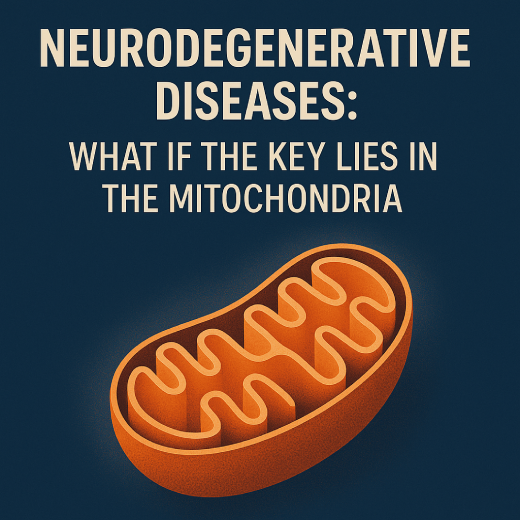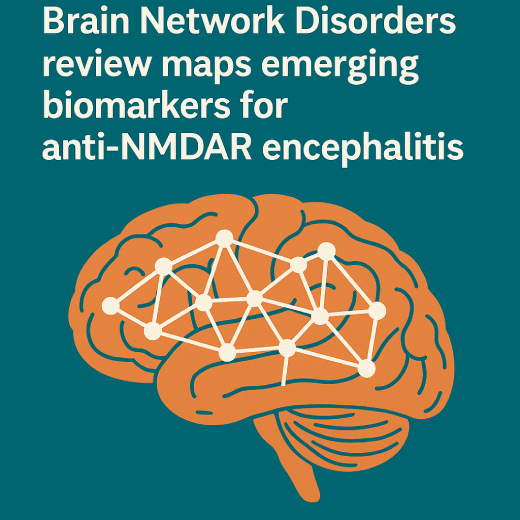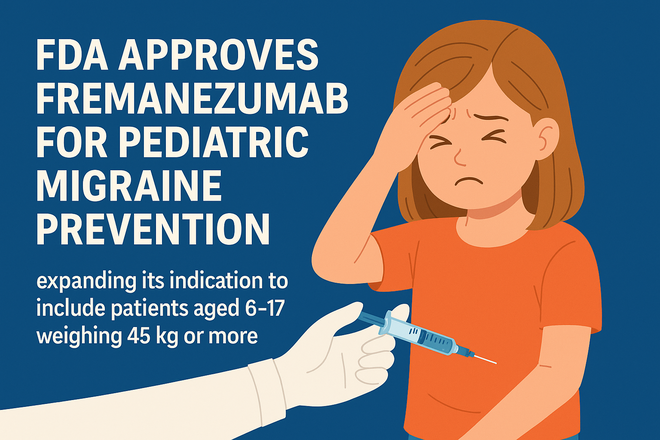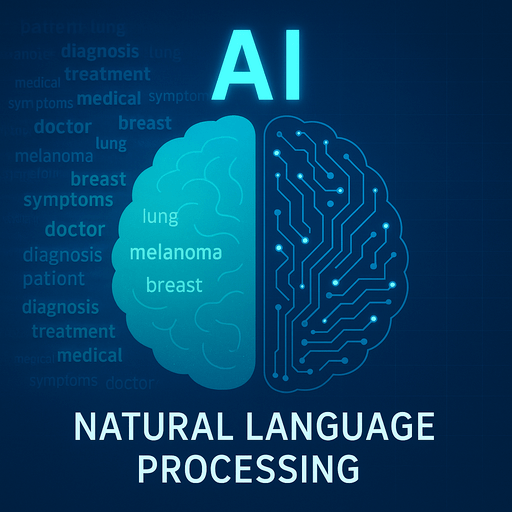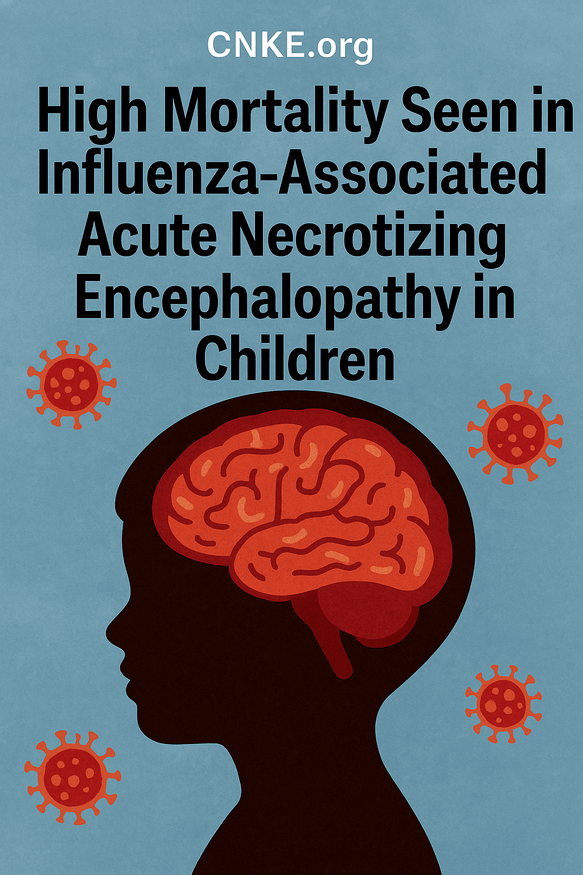In a recent peer-reviewed publication, Dr. Renee Dufault, an American scientist affiliated with the Food Ingredient and Health Research Institute, has introduced a validated research protocol to examine how ultra-processed foods influence prenatal heavy metal exposure and expression of the zinc-dependent metallothionein-1 (MT-1) gene—critical factors affecting child neurodevelopment.
The study builds on prior biomarker evidence demonstrating that dietary zinc deficiency is associated with reduced metallothionein protein levels, increasing susceptibility to bioaccumulation of neurotoxic metals such as lead and mercury. These changes have been observed in children displaying symptoms consistent with autism spectrum disorder (ASD) and attention deficit/hyperactivity disorder (ADHD).
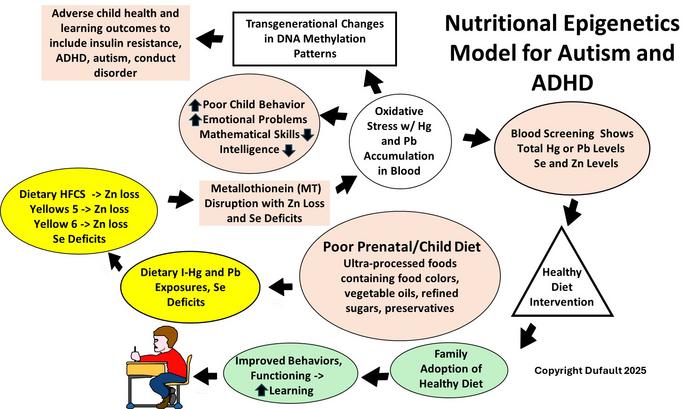 Figure shows a simplified version of the nutritional epigenetics model. Poor prenatal diet of excessive ultra-processed food intake results in the consumption of food colors, vegetable oils, refined sugars and preservatives. These food ingredients contribute to mercury (Hg) and lead (Pb) exposures and deficits in nutrition such as selenium and zinc losses. Zinc loss and selenium deficits disrupt metallothionein protein production which leads to the bioaccumulation of Hg and Pb in the blood. These heavy metals create oxidative stress and symptoms associated with child behavioral and learning disorders. Oxidative stress impacts DNA methylation patterns creating adverse child health and learning outcomes in the next generation. A healthy diet, free of ultra-processed foods, may reduce Hg and Pb levels and symptoms associated with behavioral and learning disorders (e.g., autism, attention deficit/hyperactivity disorders
Figure shows a simplified version of the nutritional epigenetics model. Poor prenatal diet of excessive ultra-processed food intake results in the consumption of food colors, vegetable oils, refined sugars and preservatives. These food ingredients contribute to mercury (Hg) and lead (Pb) exposures and deficits in nutrition such as selenium and zinc losses. Zinc loss and selenium deficits disrupt metallothionein protein production which leads to the bioaccumulation of Hg and Pb in the blood. These heavy metals create oxidative stress and symptoms associated with child behavioral and learning disorders. Oxidative stress impacts DNA methylation patterns creating adverse child health and learning outcomes in the next generation. A healthy diet, free of ultra-processed foods, may reduce Hg and Pb levels and symptoms associated with behavioral and learning disorders (e.g., autism, attention deficit/hyperactivity disorders
Dr. Dufault’s newly proposed protocol integrates a randomized control trial framework to assess the impact of nutritional epigenetics education on expectant mothers. Participants in the intervention group would receive targeted education designed to reduce their intake of ultra-processed foods, increase whole food consumption, and consequently improve blood levels of zinc and MT proteins while lowering toxic metal exposure. Biomarkers—including maternal blood samples before the intervention and cord blood after childbirth—would be analyzed to assess risk factors in infants for ASD and ADHD.
This research is part of the broader field of nutritional epigenetics—an area that investigates how dietary choices modulate gene expression. Dr. Dufault has been a pioneer in this space since 2005, when she first revealed the presence of inorganic mercury in high fructose corn syrup during her tenure at the U.S. Food and Drug Administration.
The study also highlights an ongoing public health concern: persistent heavy metal contamination in the food supply. U.S. Congressional reports released in 2021 uncovered dangerously high levels of arsenic, lead, cadmium, and mercury in a wide range of baby foods. These exposures have the potential to intensify neurodevelopmental conditions such as autism and ADHD.
Dr. Dufault’s research underscores the urgent need for nutritional policy reform, maternal education, and tighter regulation of food contaminants to safeguard child neurodevelopment during critical early life stages.
Source: PubMed | Journal: World Journal of Experimental Medicine | DOI: 10.5493/wjem.v15.i2.101555


